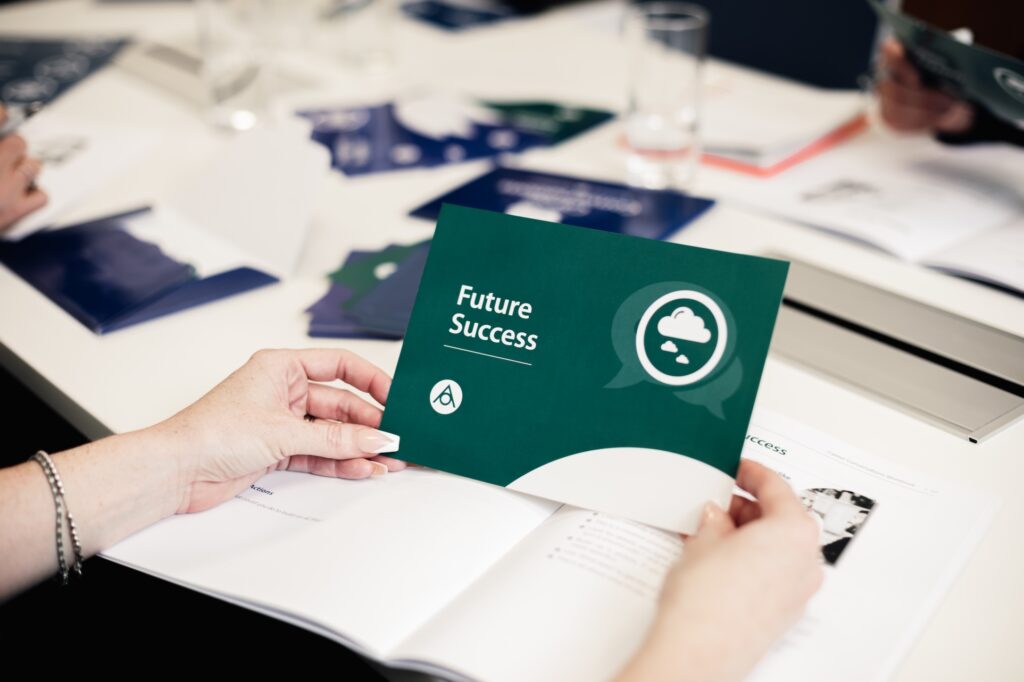How to Build a Career Development Culture That Retains and Grows Your Talent

Over the years, I’ve worked with dozens of organisations that want to support career development but don’t quite know how. The answer lies in culture, not checklists. When it comes to career development, we often focus on the individual or their line manager. But what about the organisation itself? In my book Confident Career Conversations, I make the point that the role of the organisation is to provide the environment and opportunities for career development to take place.
That means creating a culture where career conversations are expected, encouraged, and enabled. In this blog post of our three-part series, we look at the organisation’s role in building that culture and the practical steps leaders and HR teams can take to support employees at every stage of their career.
Why Organisational Support Matters
Even the most motivated employees and the most committed managers can struggle without the right organisational context. If the wider culture discourages open dialogue, punishes career moves seen as sideways, or only rewards those on a traditional path, it sends the message that career development is limited.
On the other hand, when organisations champion internal mobility, celebrate diverse career journeys, and equip leaders to have meaningful conversations, the result is:
- Greater retention of talent
- Stronger employee engagement
- Improved succession planning
- Enhanced performance and innovation
One senior HR leader at a technology company told me, “We realised people weren’t leaving because they wanted a new employer. They just wanted new challenges we weren’t offering.” That insight led to a complete overhaul of their internal mobility strategy.
What Does a Career Development Culture Look Like?
A culture that supports career development is one where:
- Employees are encouraged to think about their career aspirations and growth.
- Managers are trained and supported to have effective career conversations.
- Career development is seen as continuous, not just tied to promotions.
- Lateral, exploratory and developmental moves are celebrated.
As I highlight in the book, “Career conversations should be woven into the fabric of the organisation, not reserved for annual appraisals or exit interviews”.
Practical Steps for Organisations
1. Equip Managers with Tools and Training
Organisations must set managers up for success. Too often, managers are expected to have career conversations without any guidance. That’s why I developed the Career Conversation Toolkit and model.
One organisation I worked with trained 120 managers using this toolkit. Within six months, employees reported a significant increase in satisfaction with career development support, and internal movement increased by 15%.
Tip: Provide structured training programmes, simple tools, and ongoing support. Managers don’t need to be career coaches but they do need confidence and clarity.
2. Promote Internal Mobility and Visibility of Opportunities
Creating a career development culture means giving employees visibility into what’s possible. If employees don’t know what’s out there, they won’t feel empowered to move.
Ideas:
- Maintain an internal marketplace for jobs, secondments, or shadowing.
- Host internal career fairs or “career weeks.”
- Share employee career stories that show diverse progression paths.
One international organisation I supported created a “Career Pathways Hub” on their intranet. Within a year, it became one of the top three visited pages across the organisation. Employees told me it gave them a sense of direction and control over their career growth.
3. Recognise and Reward Developmental Moves
If you only celebrate vertical promotions, employees may feel boxed in. Instead, spotlight those who take lateral roles, project assignments, or skills-based transitions.
Tip: Feature career journeys in internal newsletters or all-hands meetings. Celebrate people who took initiative in shaping their path.
At one client organisation, we created a “Career Champions” campaign highlighting individuals who had taken sideways steps to develop new skills. It completely changed how employees perceived career progression.
4. Make Career Conversations a Regular Practice
Encourage departments and teams to build career check-ins into their rhythm. In Confident Career Conversations, I emphasise that these discussions should happen regularly and informally.
Examples:
- Include one career-focused question in monthly one-to-ones.
- Build career development into onboarding, talent reviews, and team meetings.
5. Provide Resources for Employees to Take Ownership
Career management is a shared responsibility. Empower employees with self-reflection tools, goal-setting templates, and development frameworks.
My Career Compass workbook, helps employees reflect on where they are, where they want to go, and how to get there. Organisations who embed these resources into their learning portals make career planning easier and more accessible.
Common Barriers to Building a Career Culture (And How to Overcome Them)
Creating a career development culture is not without its challenges. Some common barriers include:
- Time pressure on managers: Tackle this by showing how short, focused conversations can make a big impact.
- Lack of confidence in managers: Invest in training and simple toolkits.
- Perceived lack of opportunities: Make internal moves more visible and supported.
- Fear of losing talent to other departments: Reframe this as growing internal capability rather than losing control.
When you address these challenges head-on, you make it easier for your culture to evolve.
If you want to future-proof your workforce, you need to embed career development into your culture. That starts with equipping managers, empowering employees, and creating visibility and value around diverse career journeys.
When employees feel supported and see a future for themselves in your organisation, they’re more likely to stay, grow, and thrive. And that’s good for everyone.
Ready to build a career-positive culture in your organisation?
Request a free copy of my book Confident Career Conversations and get the tools, questions, and frameworks that have helped organisations like the World Health Organization (WHO), UNHCR and NatureScot build strong career development cultures.